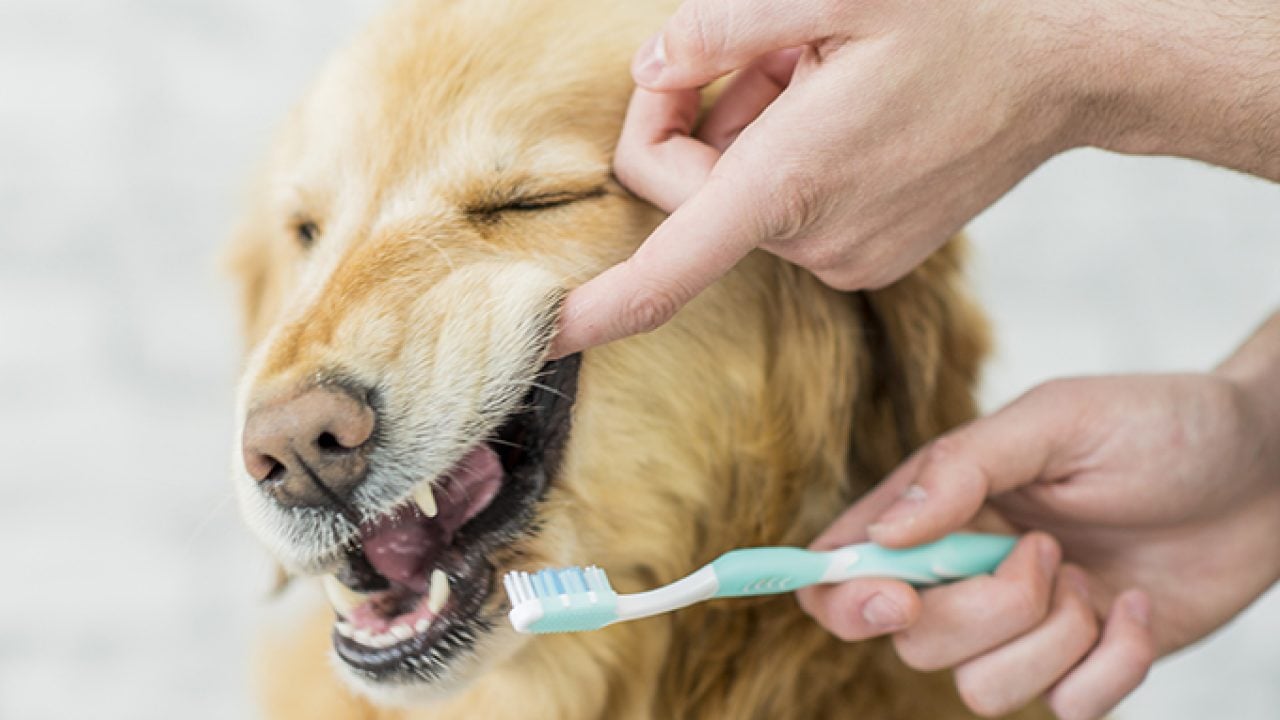Dog breath stinks, and it’s a very common problem. It’s estimated that two-thirds of all dogs have periodontal disease by the time they’re three years old. While dental health is the most common cause of bad dog breath, diet can also be a contributor. As puppies, dogs explore the world through their mouths, and the constant unsupervised snacking can lead to foul breath.
Symptoms
There are a variety of causes of bad breath in dogs, but one of the most common is an underlying health problem. These issues include kidney and liver disease. Other causes are gastrointestinal problems and sinus infections. Bad breath in dogs may also be a symptom of an autoimmune disease. In addition to these conditions, there are also several other dietary causes of bad breath in dogs.
If you notice your dog’s breath smells like urine or feces, check with your vet for a diagnosis. The smell could indicate a recent poop eating incident. However, it could also signal an underlying condition, such as kidney failure. When the kidneys are inefficient, waste products can build up in the mouth and cause bad breath.
Another common cause of dog breath symptoms is diabetes. Diabetic dogs will exhibit fruity or sweet breath, which is an indication of diabetes. Additionally, a diabetic dog will have more frequent urination and drinking. If you suspect that your dog has diabetes, schedule a visit to the veterinarian. Otherwise, your pet will probably just have a stinky breath.
Other causes of dog breath symptoms include kidney disease, periodontal disease, and kidney problems. These conditions can lead to infection and bacterial overgrowth, which can ultimately affect your dog’s kidneys and liver. It is also possible for your dog to suffer from bad breath if he has consumed a plant that is poisonous. Your vet should be able to determine the cause of the problem and offer a treatment plan.
Causes
Bad breath in dogs can be caused by several different things. While periodontal disease is the most common, there are other conditions that can also contribute to dog breath odor. For example, dogs with digestive issues may have breath that smells like meat or burps. The good news is that these conditions are typically treatable, and you can help keep your dog’s breath fresh by brushing your dog’s teeth regularly.
Dogs with bad breath should be examined by a veterinarian to rule out any serious underlying conditions. Early detection is important because treatments are most effective when the condition is caught early. For example, certain medications, specialized diets, and therapies may be necessary to help treat the condition. In severe cases, surgeries may be needed.
Dog breath stink can be caused by a variety of conditions, but in the majority of cases, it’s a symptom of an underlying health problem. While it is most common to see your veterinarian if your dog has a persistent odor, it’s also important to diagnose underlying conditions, such as rotting teeth and gums. If left untreated, these conditions may cause your dog’s breath to smell worse than ever.
Some dogs will eat canine or feline feces. This habit can contribute to dog breath smell. This is a condition called coprophagia, and it can be caused by several causes, including parasites, poor nutrition, and malabsorption problems. In rare cases, medications, such as steroids, can trigger this behavior in dogs. Fortunately, these symptoms are treatable and preventable.
Kidney failure
A metallic, ammonia-like odor on your dog’s breath is a warning sign that they may be suffering from kidney failure. It’s a condition that’s serious, and if not treated quickly, can result in death. However, your dog may be in otherwise good health and this is not a cause for alarm. A checkup by your veterinarian can help you determine whether your dog has kidney failure and what treatment is needed.
Diagnosing and treating the disease begins by performing blood tests to determine the exact cause. This allows doctors to treat the condition quickly and aggressively. Fortunately, if diagnosed early enough, the kidneys will be able to resume normal functioning. In some cases, the disease is treatable and your dog can live a normal life for months.
Pet mints
Pet mints for dogs are an excellent choice to help fight bad breath. These toothbrush-shaped treats have a special ingredient that helps break down the smell-causing buildup. Pet mints are made from plant-based protein, sweet potatoes, yogurt, and clove oil. They are also free from animal by-products, artificial flavors, and colors.
Pet mints are an easy way to help your dog have fresher breath between brushings. However, it’s important to note that these chewy treats are not a substitute for brushing your dog’s teeth. However, they can help mask the bad smells and reduce plaque buildup.
Another option is to make your own dog breath fresheners. Some products are infused with herbs that are known to have antibacterial and antifungal properties. Natural dog breath fresheners are made from herbs and minerals that will help your dog’s dental health. These products are also gentle on your dog’s gums.







